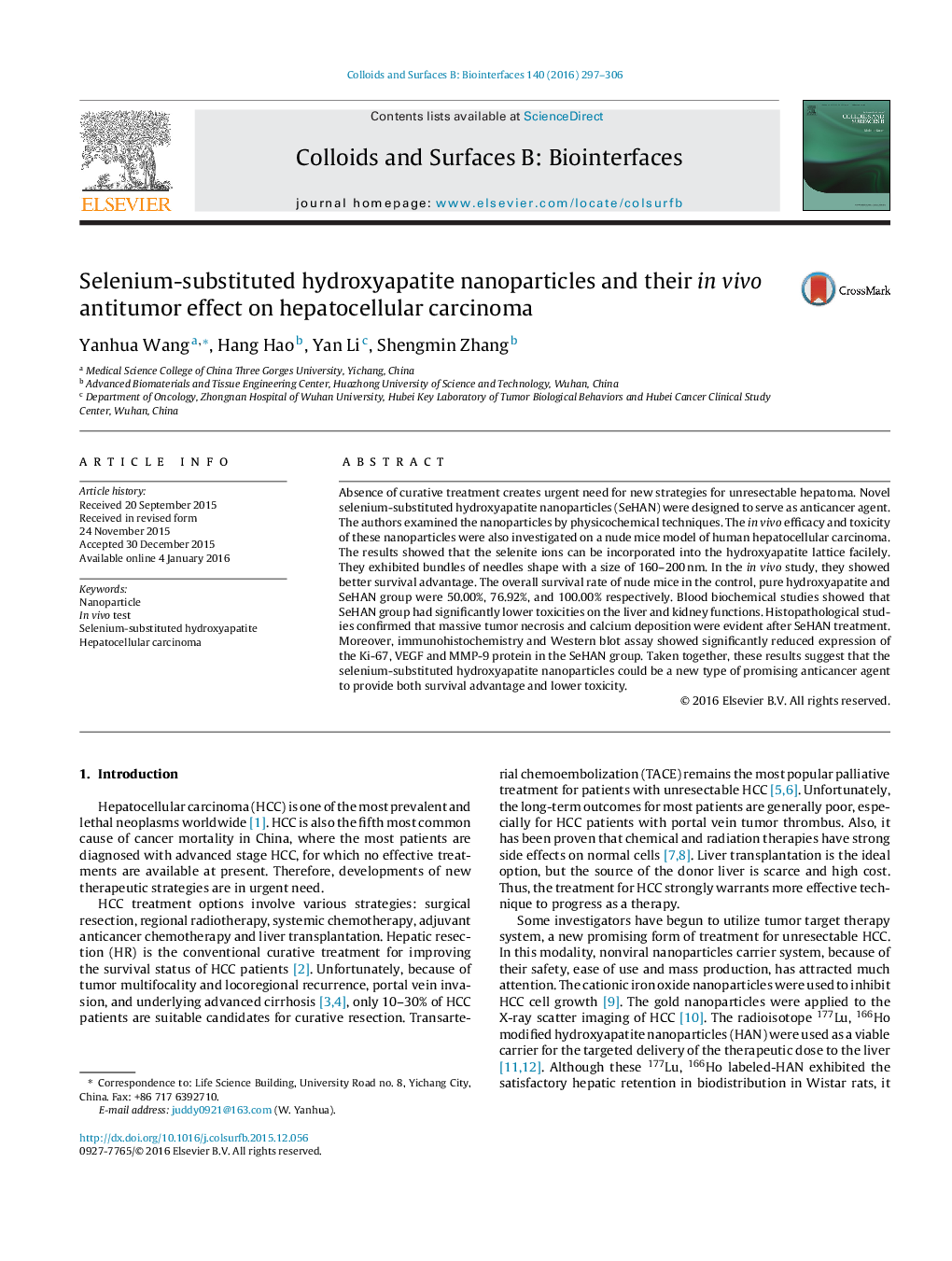| کد مقاله | کد نشریه | سال انتشار | مقاله انگلیسی | نسخه تمام متن |
|---|---|---|---|---|
| 599118 | 1454264 | 2016 | 10 صفحه PDF | دانلود رایگان |

• Selenium-substituted hydroxyapatite can be used as the anticancer carrier.
• Selenium addition can retard the growth of the hepatoma cells.
• Selenium addition exhibited lower systemic toxicity and improved organ function.
• Selenium substitution can cause the massive necrosis and apoptosis in hepatoma nest.
• The highest overall survival (100%) was got in selenium treatment group.
Absence of curative treatment creates urgent need for new strategies for unresectable hepatoma. Novel selenium-substituted hydroxyapatite nanoparticles (SeHAN) were designed to serve as anticancer agent. The authors examined the nanoparticles by physicochemical techniques. The in vivo efficacy and toxicity of these nanoparticles were also investigated on a nude mice model of human hepatocellular carcinoma. The results showed that the selenite ions can be incorporated into the hydroxyapatite lattice facilely. They exhibited bundles of needles shape with a size of 160–200 nm. In the in vivo study, they showed better survival advantage. The overall survival rate of nude mice in the control, pure hydroxyapatite and SeHAN group were 50.00%, 76.92%, and 100.00% respectively. Blood biochemical studies showed that SeHAN group had significantly lower toxicities on the liver and kidney functions. Histopathological studies confirmed that massive tumor necrosis and calcium deposition were evident after SeHAN treatment. Moreover, immunohistochemistry and Western blot assay showed significantly reduced expression of the Ki-67, VEGF and MMP-9 protein in the SeHAN group. Taken together, these results suggest that the selenium-substituted hydroxyapatite nanoparticles could be a new type of promising anticancer agent to provide both survival advantage and lower toxicity.
Figure optionsDownload as PowerPoint slideA new selenium substituted hydroxyapatite nanoparticle, with unique anticancer characteristics toward hepatoma cells, was designed, synthesized, and evaluated as the drug carrier. Notably, selenium substitution in the hydroxyapatite crystalline can retard the growth of the hepatoma cells in a nude mice model. Based on the massive tumor necrosis and cell apoptosis, in combination with low blood toxicity and improved organ function, more animals survived with the tumor.
Journal: Colloids and Surfaces B: Biointerfaces - Volume 140, 1 April 2016, Pages 297–306